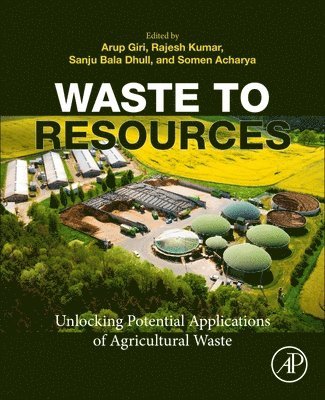Kommande

Vetenskap & teknik
Pocket
Waste to Resources
Arup Giri • Sanju Bala Dhull • Rajesh Kumar • Somen Acharya
1799:-
Waste to Resources: Unlocking Potential Applications of Agricultural Waste is a comprehensive textbook that explores various types of agricultural waste, their sources, and composition. Growing environmental concerns create a need to deploy sustainable processes within agriculture. This book sheds light on waste management techniques, covering both theory and practice, and advocates for re-framing agricultural waste as a valuable resource. It takes into account the latest research and regulatory considerations to give a well-rounded understanding of the subject. This textbook is an essential resource for upper-level undergraduate students, researchers, and professionals in environmental science and agricultural biology. The introductory chapters provide an overview of agricultural waste, including crop residues, livestock waste, pesticides, and chemical waste, and describe the environmental implications of these categories. The subsequent chapters delve into waste management techniques such as biogas production, nutrient recovery, recycling, and composting. The final chapter explores the regulatory and policy issues related to sustainable agricultural waste management.
- Format: Pocket/Paperback
- ISBN: 9780443302466
- Språk: Engelska
- Utgivningsdatum: 2025-09-01
- Förlag: Elsevier Science Publishing Co Inc

